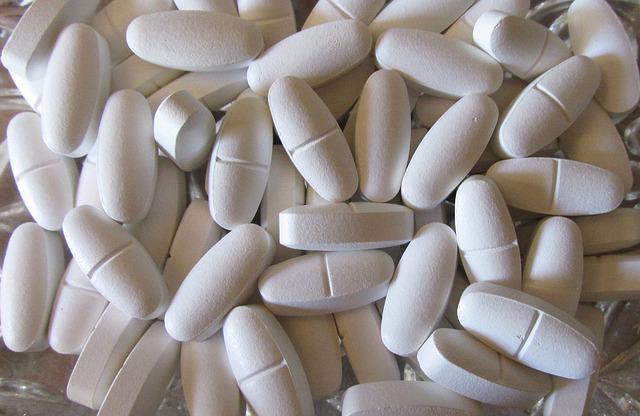Endocrinologist Reveals To Achieving Vitamin D
Endocrinologist Reveals To Achieving Vitamin D . In today’s world, whenever someone has a cold, they go to prescription medicine, which may not be the wisest choice, if we want to live a long and healthy life.
In this fast-paced world we want a quick fix, a cold or an illness like cancer is unacceptable, which is why most of us will turn to prescription medication. car.
Little do we know that when we take these prescription drugs, they deplete our bodies of the vitamins, minerals and phyto nutrients needed for our bodies to function properly.
Protecting the body against vitamin and mineral deficiencies should be our number one priority. Endocrinologist Reveals To Achieving Vitamin D Status.The following guidelines may help if you are one of the 20 million people who use prescription drugs.
Calcium
Calcium is the first mineral that can be depleted with prescription medication. These medications include diuretics such as Bumex, Demadex, Diuril, and Lasix, as well as bone-building drugs such as Fosamax and the anti-inflammatory steroids Cortef and cortone that can deplete calcium in the body. You can help prevent a calcium deficiency by eating calcium-rich foods. Calcium-rich foods include kale, cabbage, dairy products, and broccoli. If you don’t eat a lot of these vegetables every day, you might consider taking a calcium supplement.
Coenzyme Q10
Coenzyme Q10 is an important enzyme for the creb cycle (energy production cycle in the body), if you are taking cholesterol medication Statins such as Lipitor, Lescol, Mevacor, Pravachol or Zocor you will at risk for Coenzyme Q10 depletion. In addition, sulfonylurea drugs such as Amaryl, DiaBeta, and Glucotrol for diabetics may be at risk. Eating foods high in coenzyme Q10 can help prevent a COQ10 deficiency. Foods that contain CoQ10 are mackerel, beets, sardines and organ meats. If you don’t eat a lot of these meats and vegetables, you might consider taking coenzyme Q10 supplements available at any health food store.
Folic acid
Folic acid is an important B vitamin for men and women, but especially for women of childbearing age. If you take cholesterol-lowering, pain relievers, or diabetes medications such as Questran, Welchol, Celebrex, and Glucophage, you may be deficient in folic acid. Here are foods rich in folic acid. Broccoli, peas, beans, green vegetables, oranges, and whole grains all contain good amounts of folic acid. Folic acid is relatively cheap, you can find it at any health food store in 00 mcg and 800 mcg dosages.
Magnesium
Magnesium is important for muscle relaxation and bone building. If you take bone-building diuretics or steroid anti-inflammatory drugs, you may have a magnesium deficiency. Magnesium-rich foods include green vegetables, lean meats, beans, nuts, whole grains, and seafood. Recent studies have suggested that 0% of the population already has low magnesium levels, and taking prescription magnesium-blocking medications can put a person at risk for magnesium deficiency-related illness.
Potassium
Potassium is necessary for the normal functioning of nerves and muscles. In addition, potassium is essential for the normal functioning of the heart. Prescription medications that reduce potassium in the body are diuretics that reduce excess fluid and lower blood pressure, levodopa for Parkinson’s disease, and steroid anti-inflammatory drugs. The list of foods rich in potassium is: bananas, dates, brown rice, garlic, nuts, avocados, and spinach. You can also find potassium at your local vitamin store, which usually sells for 99mg per capsule.
Vitamin A
Vitamin A is the next vitamin under attack, essential for eye development and immune system function. Vitamin A can be depleted by bile acid sequestrants, steroid anti-inflammatory drugs, and Xenical. Xenical, a fat blocker, can also affect vitamin D and vitamin E. Foods rich in vitamin A are: COD and SALT fish, Liver and Dairy products.
Thiamine (B-1)
Thiamine (B-1) is involved in many bodily functions including: nervous system, muscle function and carbohydrate metabolism, to name a few. Medicines that can reduce B-1 in the body are antibiotics that help fight infections and diuretics. Foods rich in B-1 and other B vitamins are nuts and whole grains. You can find single B vitamins or B complex vitamins at your local health food store. B vitamins are essential for managing stress in the body, they are also essential for keeping your body healthy, and taking daily can help prevent drug-induced deficiencies.
Riboflavin (B-2)
Riboflavin (B-2) is necessary for cell growth and energy release, the formation of red blood cells, and the synthesis of antibodies. The drug that can block riboflavin is Elavin for migraines. Foods rich in riboflavin are dairy products, lean meats, broccoli, and whole grains. B-2 can be found at your local vitamin store.
pyridoxine (B-6)
Vitamin B6 helps the body break down proteins and carbohydrates from food and helps produce hemoglobin (red blood cells). High cholesterol drugs such as bile acid sequestrants and steroid anti-inflammatory drugs inhibit B-6 in the body.Endocrinologist Reveals To Achieving Vitamin D . Foods rich in vitamin B-6 are fish, green vegetables, bananas, and potatoes.
Vitamin C
Vitamin C is a great antioxidant to protect your body against the damaging effects of free radicals, helps strengthen blood vessels and reduces bruising when you bump your arms and legs with something. Diuretics and steroid anti-inflammatory drugs deplete vitamin C. If you take these medications, be sure to eat plenty of broccoli, citrus fruits, potatoes, tomatoes, and strawberries. Supplemental vitamin C supplements may also be helpful. Vitamin C can be found at any health food store.
Vitamin D
Vitamin D is important for strong bones and teeth, and recent studies show that vitamin D may even help fight certain types of cancer. If you take barbiturates such as butisol and phenobarbital for anxiety or insomnia or blood pressure and steroid anti-inflammatory drugs, you may be at increased risk for vitamin D deficiency-related illness. Our body produces vitamin D and our fast lifestyle No one has time to spend 30 minutes in the sun every day if




